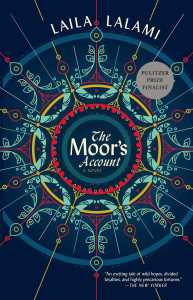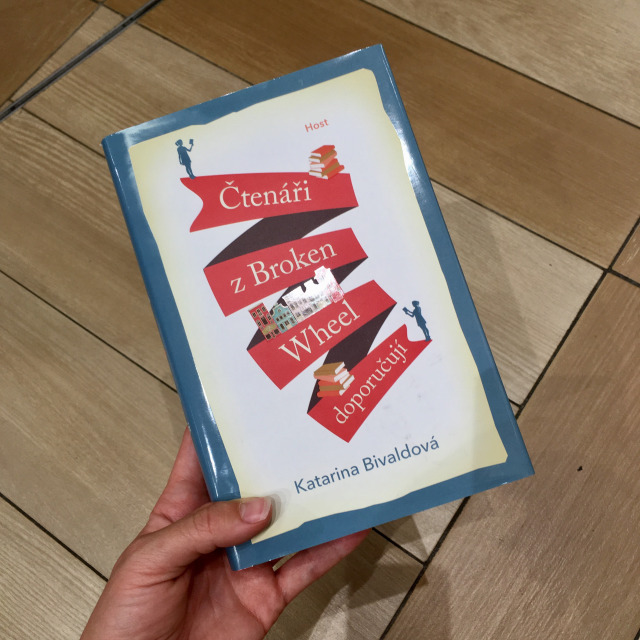 Laila Lalami’s The Moor’s Account was on the 2015 Man Booker Prize long-list and also a finalist for the Pulitzer Prize. I tried to keep my expectations modest when opening the book, but it wasn’t easy.
Laila Lalami’s The Moor’s Account was on the 2015 Man Booker Prize long-list and also a finalist for the Pulitzer Prize. I tried to keep my expectations modest when opening the book, but it wasn’t easy.
From the back cover:
In these pages, Laila Lalami brings us the imagined memoirs of the first black explorer of America: Mustafa al-Zamori, called Estebanico. The slave of a Spanish conquistador, Estebanico sails for the Americas with his master, Dorantes, on a danger-laden expedition to Florida. Within a year, Estebanico is one of only four crew members to survive.
As he journeys across America with his Spanish companions, the Old World roles of slave and master fall away, and Estebanico remakes himself as an equal, a healer, and a remarkable storyteller. His tale illuminates the ways in which our narratives can transmigrate into history—and how storytelling can offer a chance at redemption and survival.
The Moor’s Account is fictional, though it follows the broad strokes of the Narváez Expedition. It’s hard to be too rough on this book because I admire its new angle. Mustafa’s tale has all the hallmarks of adventure lit: ships in bad weather, harsh landscapes, trouble with locals, and hungry wildlife, but with an added layer of social tension:
The rules and formalities that had existed on land could not be maintained on the rafts—a nobleman had to sleep beside a blacksmith; a royal official was forced to share a cup of water with a carpenter. Worse: our ablutions were no longer private. A man who has had to relieve himself in full view of there finds it harder to assert his superiority over them. For Dorantes, especially, it was a humbling experience. But for one like me, who had already known these humiliations, it was a reminder that all fates, including my master’s, could turn upside down. And I would do whatever it took in order to right mine. (151)
Mustafa explains that his account will hold less weight than those of others, but his perspective as an ‘outsider’ feels truthful. He doesn’t have to explain or justify the expedition’s failures; he merely chronicles the bad decisions made in the shameless pursuit of gold.
The first half of the story switches between the expedition and Mustafa’s life before he was sold to Dorantes. Though the latter story has a known ending, the way it unspools is surprising and well-crafted. Unfortunately, once the flashbacks end and the story is set entirely in the Americas, it loses steam. I’m not sure why—encounters with the Native Americans do follow a pattern, but they’re not predictable or repetitive. Somehow, it seems like there is less and less at stake as the novel progresses. From the outset, we know the names of everyone who survives to write their memoirs. Once the expedition’s number, which started in the hundreds, is down to these four men, there isn’t much mystery left. It’s clear they’re just going to wander until reaching a Spanish city. The writing is soft and languid, it almost lulled me to sleep once the story calmed and began moving in an obvious way.
If I had to guess the reason this book won neither the Booker nor the Pulitzer, it would be on account of its ending. The ending is very tidy, wrapping up so neatly that it feels dreamlike. Annoyingly, characters not only revert to who they were at the beginning, but become caricatures plucked from a morality play. What is the point of creating a convincing, 16th-century world only to slap modern views on the ending? It’s as though Lalami is trying to present her credentials as a “good person,” as though we’d otherwise believe she was advocating for slavery just by depicting it as it was. Her comments on freedom are moving and effective, but ultimately modern. The end almost functions as a discussion guide; you can imagine a professor closing the book to ask their class: “What have we learned?”
Overall: 4.6 It’s compulsively readable if a bit simplistic at the end. I’m a fan of adventure/exploration lit and this book offers something new and clever.
Translation: Read it.
Share this:



![IMG_7152[1]](/ai/068/659/68659.jpg)

